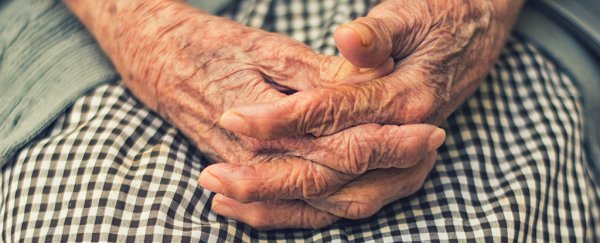For the first time, data from millions of doctor's visits has revealed that there really doesn't appear to be a link between rainy weather and achy joints - a claim that has persisted for centuries.
Most of us likely have an older relative who says they can predict a weather change coming, thanks to flare-ups of their arthritis or back pain.
Studies have investigated such claims before with mixed results, and the lack of a firm conclusion has been compounded by small sample sizes and the limitations of using surveys where people self-report their symptoms.
Such methods make it difficult to weed out the possibility that people are simply seeing a correlation where none actually exists, even if the idea that changes in barometric pressure have an effect on a chronic condition is not entirely wacky.
A team of US researchers decided to look into this question using a different approach - by linking Medicare insurance claims to rainfall data from thousands of weather stations in the country.
This "big data" approach allowed the researchers to analyse a much, much larger sample than what is achievable with typical surveys - over 1.5 million patients aged 65 years and older, who had more than 11.6 million joint- or back-pain related outpatient visits over the course of four years.
The team compared the proportion of such visits on rainy and non-rainy days, and ended up with a negative result - there was no link between complaints about pain and rainfall on the day of the appointment, or during that week, or even the preceding week.
"No matter how we looked at the data, we didn't see any correlation between rainfall and physician visits for joint pain or back pain," says lead author of the study, physician Anupam Jena from Harvard Medical School.
"The bottom line is - painful joints and sore backs may very well be unreliable forecasters."
Overall, they found that 6.35 percent of the office visits included pain complaints on rainy days, while 6.39 percent of the pain-related complaints were noted on dry days. And that difference is so small, the team doesn't consider it to be of clinical significance.
As the researchers note, the main limitation of the study is the fact the data didn't account for disease severity "to definitively exclude higher rates of joint or back pain related to rainfall", and they also didn't have data on whether people may have been self-managing their pain with non-prescription painkillers.
Additionally, the research only looked at rainfall, not things like temperature, barometric pressure and temperature, so there's still more scope for future investigation.
"A relation may still exist, and therefore larger, more detailed data on disease severity and pain would be useful to support the validity of this commonly held belief," the team writes in the study.
So, while there results don't definitely prove that there is no link between joint pain and weather, they do put a pretty huge dent in the concept.
"It's hard to prove a negative, but in this flood of data, if there was a clinically significant increase in pain, we would have expected to find at least some small, but significant, sign of the effect," says Jena.
"We didn't."
The research was published in the BMJ.
